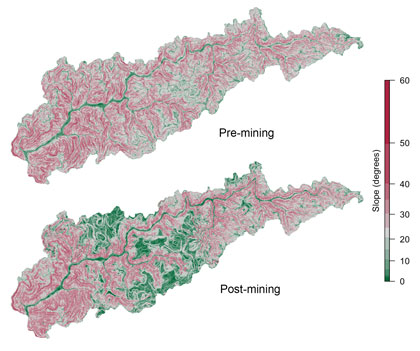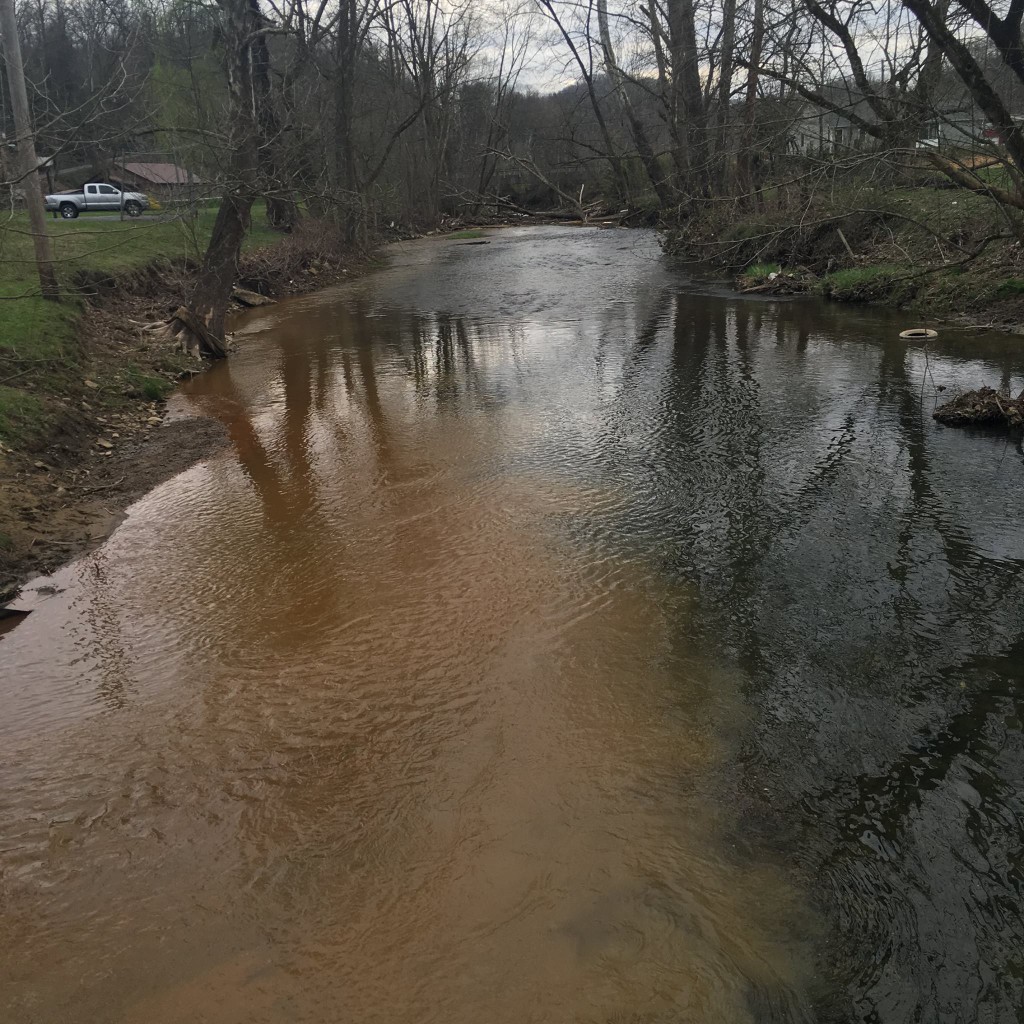 Mountaintop Removal Needs to Be Banned to Save “Wild and Wonderful” West Virginia
Mountaintop Removal Needs to Be Banned to Save “Wild and Wonderful” West Virginia
May 10, 2016
Ms. Makenzie Poe
361 Vitez Drive
Morgantown, WV 26508
Editorial Page Editor
Newspaper Name
Street Address
City, State Zip Code
Editor:
I believe that mountaintop removal coal mining should be banned in West Virginia because of its negative impact on the state’s environment. Mountaintop removal is a method of coal extraction in which the mountain is removed from the coal instead of the coal from the mountain. The mining companies use a process that consists of clearing, blasting, digging, valley fills, processing and reclamation which they claim has no negative impact on the West Virginia land or wildlife. However, firstly, mountaintop removal results in extremely negative effects to the West Virginia landscape because it causes loss of topsoil, loss of forest cover, increased flooding, destruction of wildlife habitat, and creation of slurry impoundments. Secondly, mountaintop removal negatively impacts the aquatic environment in West Virginia because harmful heavy metals and other pollutants find their way into local water supplies and end up killing the local aquatic wildlife. Finally, there is growing evidence, such as higher rates of lung cancer, indicating that mountaintop removal activities negatively impact the health of the people that live nearby.
Supporters of mountaintop removal mining often advocate for the destructive practice by saying their corner of the planet deserves buildable flat land. However, people that support banning mountaintop removal argue that the cost to the landscape and the surface environment is too great. A study out of Duke University in February 2016 shows that parts of Central Appalachia have calculated areas that became 40 percent flatter after mining (Figure 1).
Emily Bernhardt, a professor of biology at Duke University and co-author on the study, believes that mountaintop removal is penetrating much more deeply into the earth than other land use in the region like forestry, agriculture or urbanization and is having harsher effects on the area. She said that “the depth of these impacts is changing the way the geology, water, and vegetation interact in fundamental ways that are likely to persist far longer than other forms of land use.” One thing that particularly interested the team is how the conversion from solid bedrock to porous valley fills changes the way water moves through the area. In their results, they found that when the land changes from shallow soil to soil that is 100 meters deep that the water moves through the two landscapes very differently and causes negative impacts by having an entirely new erosion system that is based upon more soil and less bedrock. This causes more pollutants in the downstream water supplies and much more flooding.[1]
Creating a new erosion system causes a negative chain reaction where the drastic altering of the topography causes poisonous pollutants to be put into the water supply and ends up killing the local aquatic life. In West Virginia’s Appalachian mountains, fish are vanishing. A government study in 2014 traces the decline in abundance of fish to mountaintop removal.[2] The use of explosives causes shattered rock to fall into the rivers and streams. The minerals from the shattered rocks change the water’s chemistry by lowering its quality causing tiny prey such as insects, worms and invertebrates to die. The loss of these tiny prey results in the lack of an important food source for the fish (Figure 2).
West Virginia residents are not only losing their land and their clean water, they are also losing their health. A 2014 West Virginia University (WVU) study found that dust from mountaintop removal coal-mining operations promotes the growth of lung cancer tumors.[3] WVU researchers collected dust from communities near mountaintop removal sites in southern West Virginia. They examined its effects on human lung cells to try to investigate previous evidence that showed higher levels of lung cancer, even after considering for other factors such as smoking. Previous studies had been criticized for a lack of proof to support their claims, but this study shows solid evidence that frequent exposure to mountaintop removal dust caused cell changes that indicated development of lung cancer. The data indicated “lung tumor promotion and progression” that showed the dust is “a health concern as a cancer promoter.”
West Virginia is known as the “Wild and Wonderful” state. If mountaintop removal is allowed to continue to negatively impact the West Virginia landscape, its aquatic environment, and the health of the people, then there will not be any “wild and wonderful” for the future generations of West Virginians to enjoy. Studies show that the change in topography causes poisonous pollutants to go in the local water supplies, the poisonous pollutants in the water supply kills the aquatic wildlife, and the health issues caused by exposure to the mountaintop removal dust will negatively impact West Virginia for many years to come. It is essential to ban mountaintop removal in West Virginia before any more permanent damage can be done to this beautiful state!
Sincerely,
Makenzie Poe
2016-03-07 WV History Research Project Final


Sources:
http://auroralights.org/map_project/theme.php?theme=mtr&article=primary
http://auroralights.org/map_project/theme.php?theme=prenter&article=15
http://auroralights.org/map_project/theme.php?theme=mtr&article=6
http://www.courier-journal.com/story/tech/science/watchdog-earth/2016/02/16/flattening-appalachia/80442484/
https://www.washingtonpost.com/national/health-science/mountaintop-removal-for-coal-hurts-water-quality-and-harms-fish-study-says/2014/07/13/0072f69e-0783-11e4-bbf1-cc51275e7f8f_story.html
Click to access document_gw_02.pdf
http://www.wvgazettemail.com/article/20141016/GZ01/141019355
[1] http://today.duke.edu/2016/02/mountaintopmining
[2] https://www.washingtonpost.com/national/health-science/mountaintop-removal-for-coal-hurts-water-quality-and-harms-fish-study-says/2014/07/13/0072f69e-0783-11e4-bbf1-cc51275e7f8f_story.html
[3] http://www.wvgazettemail.com/article/20141016/GZ01/141019355

